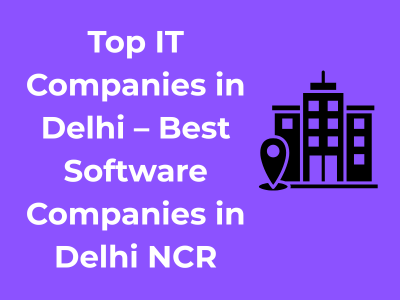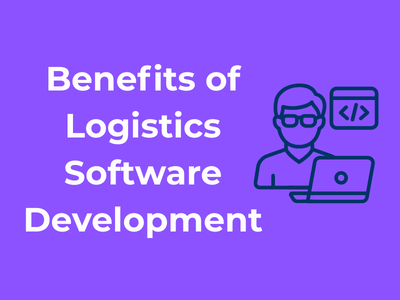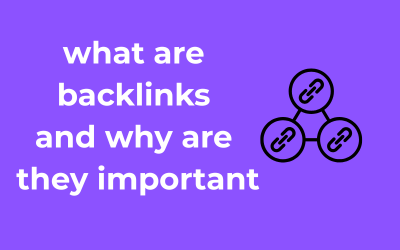So, you’re curious about EV (Electric Vehicle) Management? No worries—you’re in the right place! Let’s start with a simple breakdown of what EV management is all about and why it’s essential in today’s rapidly evolving world of electric vehicles.
What Exactly is EV Management?
At its core, EV management refers to the process of monitoring, analyzing, and optimizing the usage, charging, and maintenance of electric vehicles—be it for personal use or larger fleets. Think of it as having an all-knowing assistant that ensures your EVs are always ready, efficient, and cost-effective to operate.
For businesses managing large fleets, this process can become quite complex. From keeping track of battery performance to planning charging schedules and analyzing overall efficiency, there’s a lot to juggle. In fact, effective EV management directly contributes to better production efficiency by reducing downtime and ensuring smoother operations. That’s where EV management software comes into play (but we’ll touch on that more in another section
Why Is EV Management Important?
- Optimizing charging schedules: EV batteries don’t last forever, and improper charging can reduce their lifespan. EV management focuses on charging vehicles intelligently to maximize battery life.
- Reducing costs: No one likes overspending. A good EV management strategy will help reduce energy costs by utilizing data to charge at optimal times (like during off-peak hours).
- Minimizing downtime: For EV fleets, downtime is a big no-no. Having a comprehensive view of your EVs’ health lets you stay ahead of potential issues.
- Meeting environmental goals: EVs are already a step toward sustainability, but effective management ensures their environmental impact is further minimized through efficiency optimization.
Key Components of EV Management
To paint a clearer picture, here are some major elements included in the EV management process:
- Vehicle Tracking: Ensuring you know the location of your EVs at all times (super helpful for business fleets, right?).
- Battery Monitoring: Keeping an eye on battery health, charge levels, and overall efficiency to avoid any unwelcome surprises.
- Charging Infrastructure Management: Need to maintain and operate charging stations? Tracking their availability and performance is crucial here.
- Data Analysis: The numbers don’t lie! Analyzing usage trends, costs, and fleet performance helps make data-driven decisions to improve operations.
Who Benefits from EV Management?
Great news—EV management isn’t just for businesses operating fleets. Anyone who owns an EV can benefit from good management practices! However, it’s particularly advantageous for:
- Fleet Owners: Businesses managing a group of EVs rely on efficient management to reduce costs and improve operations.
- EV Enthusiasts: Everyday owners who want to maximize their vehicle’s lifespan, reduce their carbon footprint, and save on energy costs.
- Public Transportation Providers: Electric buses and taxis also require fine-tuned management to ensure smooth daily operations.
Why EV Management Software is a Game-Changer for Fleet Owners

Hey there, fleet managers and business owners! Are you currently juggling the complexities of managing your EV fleet? Or perhaps you’re on the fence about transitioning to electric vehicles entirely? Well, let me fill you in on a little secret—EV management software is here to transform the way you operate, for the better. Let’s talk about why this software is truly a game-changer for anyone managing a fleet of electric vehicles.
1. Simplifies Fleet Operations
Managing a large fleet can feel like solving a 10,000-piece puzzle; this is where EV management software saves you from a potential headache. These platforms act as your all-in-one toolkit, connecting fleet data, organizing maintenance schedules, and even monitoring vehicle performance, all from a single dashboard. By centralizing your operations, you’ll save time, reduce human error, and gain a comprehensive view of your fleet’s real-time status.
2. Optimizes Energy Use (and Cuts Costs!)
One of the standout features of EV management software is its ability to monitor and optimize energy consumption. Smart algorithms and data tracking allow you to efficiently schedule charging sessions, track battery health, and avoid peak energy pricing. Imagine — you could save thousands in energy costs annually by simply charging vehicles at off-peak hours. Doesn’t that sound good for your bottom line?
3. Enhances Sustainability Efforts
Adopting EVs is already a giant leap toward reducing your environmental footprint. But managing them effectively is the next step—and this software ensures you’re on top of it. Many online platforms can calculate your fleet’s carbon footprint reduction in real time. These tools provide insights you can share with stakeholders to show your commitment to sustainability. It’s a win-win for both the planet and your business reputation.
4. Improves Driver Productivity
Let’s not forget the stars of your operation: your drivers. By providing data such as optimized routes, real-time traffic updates, and charging station locations, EV management software ensures a smoother, frustration-free journey for your team on the road. Happy, productive drivers make for a better-managed fleet overall.
5. Offers Proactive Vehicle Maintenance
No fleet owner likes dealing with vehicle downtime. EV management tools can monitor the health of your EVs and flag early signs of wear and tear. By staying ahead of issues such as battery degradation or system malfunctions, you can schedule preventative maintenance and avoid costly repairs later.
6. Keeps You Ahead in a Competitive Market
Lastly, adopting EV management software isn’t just about efficiency—it’s about staying ahead of the curve. As more businesses move towards electrification, leaning into advanced tools will keep you a step ahead of the competition. Plus, you’ll be better equipped to adapt to future trends and new technologies, ensuring you maintain your competitive edge.
Key Features Every EV Management Tool Should Offer

If you’re diving into the world of EV management software, you’re probably wondering, “What should I actually look for in one of these tools?” Great question! Choosing the right EV management software can be a game-changer, but only if it has the essential features to meet your needs. Let’s break it down into a friendly checklist of must-haves!
1. Real-Time EV Monitoring
Who doesn’t love staying in the loop? Real-time monitoring is a top feature, allowing you to track each EV’s performance, battery health, and location live. This means no guessing games when it comes to charging levels or range. Having this instant visibility ensures you catch potential issues before they become major disruptions. It’s like having your own crystal ball for operational success!
2. Smart Charging Management
Gone are the days of blindly plugging in your EVs. A good EV management tool should offer smart charging controls to optimize energy usage and reduce costs. Features like scheduling charging during off-peak energy hours or balancing the load across multiple stations ensure you’re running efficiently *and* economically. Bonus points if the software works seamlessly with various charger models!
3. Detailed Analytics and Reporting
Data geeks, rejoice! The right EV management solution should offer robust analytics to give you insights into energy consumption, costs, utilization rates, and maintenance trends. A visual dashboard or customizable reports can make analyzing this data not only easy but also enjoyable. After all, who doesn’t love making data-driven decisions?
4. Route Optimization
For those managing fleets, route optimization tools are a lifesaver. This feature helps you plan the most efficient routes for your EVs while accounting for factors like charging station locations, traffic conditions, and range limitations. Efficiency and sustainability? Sign us up!
5. Predictive Maintenance Alerts
Let’s face it—downtime is the enemy of productivity. A fantastic EV management tool should provide predictive maintenance. Think of it as your virtual mechanic that alerts you before there’s even a hiccup with your fleet. Whether it’s a battery issue or a software upgrade, these alerts will help you keep your EVs road-ready.
6. Scalability
Planning for the future? Great EV management software grows with you! Look for tools that can support smaller pilot programs and then scale up as your fleet or infrastructure expands. This flexibility ensures you won’t need to switch systems just because your business thrives.
7. User-Friendly Interface
No one has time to wrestle with clunky software! A clean and intuitive user interface can make training your team a breeze and improve daily operations. Plus, you’ll thank yourself when every click leads you exactly where you need to go.
8. Integration Capabilities
A well-rounded EV management tool should play well with your existing systems. Integration with telematics, fleet management software, and energy providers can save you from headaches and ensure a seamless workflow.
Comparing Available EV Management Platforms: What Sets Them Apart?
When it comes to managing electric vehicles (EVs) efficiently, the tools you use can make or break your operations. With so many EV management platforms available in the market, each claiming to be the best, it can feel like navigating a maze. But don’t worry—we’ll help simplify things so you can better understand what sets these platforms apart!
1. Customization and User Experience
A major aspect to consider when comparing EV management platforms is how customizable and user-friendly they are. Some platforms offer a sleek dashboard that can be quickly tailored to suit your needs, while others might feel clunky and overwhelming. Look for systems that provide easy navigation for key metrics like charging schedules, battery health, and energy consumption.
Pro Tip: User-friendly platforms should include detailed tutorials and customer support to help you get started without pulling your hair out!
2. Scope of Features
Different EV management platforms often come with varying levels of functionality. Some focus solely on charging optimization, while others go the extra mile with predictive analytics, robust maintenance tracking, and even integration with renewable energy sources like solar panels. Take note of your specific needs and compare how each platform meets them.
- Need seamless fleet management? Look for tools with route optimization and real-time monitoring.
- Concerned about costs? Platforms offering expense tracking and energy reports are lifesavers.
- Prioritizing sustainability? Find platforms that can measure and improve your carbon footprint performance.
3. Scalability
Whether you’re scaling up to a 100-vehicle fleet or just managing a small business, your EV management software needs to keep pace. Some platforms may work wonders for startups but falter under the pressure of larger fleets. Scalability ensures the platform can grow and evolve with your business.
Ask Yourself: Will this software be relevant in five years as my fleet grows, or will I need to switch to a new provider?
4. Data Integration and Connectivity
Modern EV management platforms are all about connectivity. These platforms shine when they can integrate seamlessly with other software or systems you’re already using, such as fleet tracking systems, telematics, or even accounting software. Additionally, many offer IoT-powered solutions for real-time insights and detailed analytics.
Keep an eye out for platforms compatible with OEM (Original Equipment Manufacturer) dashboards and diverse charging station networks. The more interconnected the system, the more streamlined your operations will be.
5. Pricing Models
Budget is always a key factor, right? The pricing models for EV management platforms can vary greatly. Some are subscription-based, offering tiered services depending on your needs, while others might charge per vehicle or license. Ensure that there are no hidden fees and that the features you’re paying for align with your operational goals.
Hot Tip: Look for free trials or demo versions before committing to a payment—this can give you a “test drive” without the risk!
6. Security and Reliability
Finally, don’t overlook security and reliability! With sensitive data like GPS coordinates, route information, and energy usage stored in these platforms, robust cybersecurity measures are a must. Plus, consistent uptime and minimal software issues can save you from headaches in the long run.
Read user reviews and ratings to get an idea of how reliable and secure a specific platform is.
How to Choose the Right EV Management Software for Your Needs
So, you’ve decided to adopt EV management software for your fleet or EV infrastructure? That’s an excellent step forward! However, with so many options out there, narrowing the best fit for your needs can be overwhelming. Don’t worry, whether you’re a seasoned fleet manager or a curious newbie, I’ve got you covered. Let’s break it down into manageable, actionable steps to help you choose the perfect EV management software for your unique situation.
1. Define Your Needs Clearly
The first step is taking a deep breath and asking, “What do I want this software to do for me?” Maybe you’re trying to improve energy efficiency and optimize charging schedules, or perhaps tracking vehicle performance and monitoring maintenance is more critical for you. Write down a checklist of features based on your operational goals. Here are some points to consider:
- Fleet size: How many vehicles do you need to manage?
- Charging management: Do you want smart scheduling for EV charging?
- Cost control: Is energy cost optimization a priority?
- Data insights: Would you benefit from comprehensive analytics?
- Ease of integration: Will it sync easily with existing systems you’re using?
2. Compare Available Options
Once you’ve identified your priorities, start narrowing down potential candidates based on their capabilities. Look out for:
- User interface: Does the software look easy to navigate?
- Scalability: How well does it adapt to business growth or a larger fleet?
- Software support: What level of customer service or training is offered?
- Compatibility: Is it compatible with your existing systems or hardware?
You can also check online reviews or forums to see what other fleet operators think about a platform. Real-world feedback often reveals the strengths and flaws of a system.
3. Embrace Trial Periods and Demos
Never underestimate the value of a free trial or software demo! Most providers offer these so you can test the functionality before committing. Sign up for a trial and test-drive the platform against your specific needs. Carefully evaluate:
- How seamlessly it integrates into your daily operations.
- Whether it actually simplifies fleet management or adds complexity.
Don’t hesitate to ask the provider questions during this phase—good communication is often a sign of strong ongoing support.
4. Consider Your Budget
EV management software can range from surprisingly affordable to a significant investment, so align your choice with your budget. However, it’s essential to view this as a long-term investment. A slightly pricier yet more efficient software might save you money down the line in improved energy efficiency and reduced operational headaches.
5. Prioritize Security and Compliance
Security is crucial whenever dealing with data, so confirm the software safeguards sensitive information such as fleet usage patterns, routes, and energy consumption. Check if it complies with your region’s data privacy laws and industry standards.
6. Consult Your Team
Finally, involve your team in the decision-making process. After all, they’ll be using the software day in and day out. Their feedback on user-friendliness and functionality can be invaluable in narrowing down your options.
Real-World Examples: How Companies Have Integrated EV Management Software Effectively
Switching to Electric Vehicles (EVs) is an exciting leap forward, and for businesses managing EV fleets, it’s even more thrilling when you see how others have made it work successfully. Let’s take a look at some real-world examples of how companies have used EV management software to streamline their operations, reduce costs, and contribute to a greener planet. Buckle up!
1. Logistics Company Revolutionizes Delivery Operations
An international logistics company decided it was time to address their environmental impact. With a growing pressure to adopt sustainable practices, they transitioned to a fleet of EVs and implemented EV management software to manage their operations. The software allowed them to:
- Optimize delivery routes: With built-in route planning capabilities, the company significantly reduced energy consumption by ensuring drivers didn’t waste time (or battery charge) on inefficient paths.
- Monitor battery health: The software provided real-time updates on battery performance, allowing them to proactively schedule maintenance and avoid unexpected breakdowns.
- Track charging patterns: They could identify peak and off-peak electricity rates through data provided by the software, saving thousands in energy costs.
The result? A happier team, reduced fuel expenses, and a hefty reduction in their carbon footprint. Win-win!
2. Ride-Sharing Company Enhances Customer Satisfaction
A bustling ride-sharing company made the shift to electric vehicles, aiming to improve their green credentials. But it wasn’t without challenges—managing charging schedules and ensuring zero downtime was a tough nut to crack. Their solution? Integrating a robust EV management platform.
- Real-time notifications: Drivers received updates on nearby available charging stations, reducing the time spent searching for a spot to recharge.
- Usage analytics: By identifying peak operational hours, the company ensured that their EVs were adequately charged at the start of every busy period.
- Driver training: The data from the platform allowed them to assess driving habits and provide feedback to help their gig-economy drivers conserve energy.
Customer satisfaction improved dramatically as drivers maintained timely pickups, and operational costs dropped significantly.
3. Corporate Giant Embraces Sustainability
A global leader in the tech industry made headlines when they pledged to electrify their entire corporate vehicle fleet. With thousands of cars spread across international offices, managing this monumental task required a central EV management system. Here’s how they did it:
- Centralized tracking: Management software enabled them to oversee all vehicles under one platform, no matter where in the world they were.
- Integration with renewable energy: They installed solar panels at their offices and linked them to their EV chargers, leveraging the software to monitor energy production and consumption seamlessly.
- Employee accessibility: The software provided employees with an app to check vehicle availability and charging status, promoting convenience and efficiency.
Thanks to these tools, they achieved their sustainability goals ahead of schedule while significantly lowering operational complexity.
What Can Your Business Learn?
The stories above show how organizations, big and small, can benefit from EV management software. These tools aren’t just about streamlining operations—they pave the way for cost savings and environmental leadership. With the right approach, your business could be the next success story!
Future Trends: What’s Next for EV Management Solutions?
The world of electric vehicles (EVs) is evolving at warp speed, and with it, the software needed to manage them is stepping up its game too. So, what’s the next big thing waiting to reshape EV management solutions? Let’s take a peek into the future, exploring some exciting trends that could redefine this industry.
The Role of Artificial Intelligence (AI) and Machine Learning
AI and machine learning are poised to become the superheroes of EV management software. Imagine a smart system that doesn’t just collect data but actively learns and predicts patterns. For example:
- Predictive Maintenance: Software that can detect when an EV requires maintenance before it even shows signs of trouble. This means fewer breakdowns and more uptime for fleets.
- Real-Time Route Optimization: AI could calculate optimal routes based on traffic data, weather conditions, and EV battery status, ensuring smoother and more energy-efficient journeys.
Incorporating this intelligence reduces manual intervention, providing fleet owners with a hands-free yet highly sophisticated management tool.
Enhanced Integration Capabilities
In the future, we’re likely to see EV management software syncing even better with other systems. Think about how seamless connectivity could elevate the game:
- Integration with charging networks for automatic charging station reservations and payments.
- Collaborations with smart grid systems for optimized energy use based on electricity demand and supply.
- Ability to link with GPS and weather services for more accurate and adaptable planning.
The goal? A more connected ecosystem that enables users to operate their fleets or personal EVs with absolute convenience and minimal guesswork.
Focusing on Sustainability and Renewable Energy Synergy
EV management software is already contributing to a greener planet, but future iterations will double down on sustainability. Here’s how:
- Renewable Energy Integration: Look forward to software that actively aligns EV charging with renewable energy production, maximizing the use of solar and wind power.
- Carbon Footprint Tracking: New tools may allow users to track and reduce their EV emissions more precisely, helping companies meet environmental goals and personal users feel more eco-conscious.
This means not just managing EVs for functionality but also contributing directly to a cleaner tomorrow.
Over-the-Air Updates: A Must-Have Feature
Gone are the days of cumbersome software installations. In the future, EV management solutions will include robust over-the-air (OTA) update capabilities. These updates will ensure your system is always up to date with new features, improved performance, and stronger security, all without the need for human intervention.
User-Centric Design: Putting Simplicity First
Future EV management software will go all out on user-friendliness, designed to cater to people who aren’t necessarily tech-savvy. Expect:
- Interactive dashboards that visualize data in easy-to-understand ways.
- Customizable alerts that notify you of important events without being overwhelming.
- Voice-activated commands: Yes, talk-to-software capabilities might very well be the norm!
The focus will be on making EV management as intuitive as possible so anyone can navigate it with confidence.
The Road Ahead
Future trends in EV management solutions look bright, innovative, and full of potential. Whether you’re managing a fleet of vehicles or just exploring tools for your EV, the upcoming advances promise to make everything smarter, faster, and greener. The EV landscape is charging forward—are you ready to zoom into this exciting future?
Whatever your goals, staying ahead of these trends can give you a significant edge. After all, the future of EV management isn’t just about managing—it’s about unlocking new possibilities!











